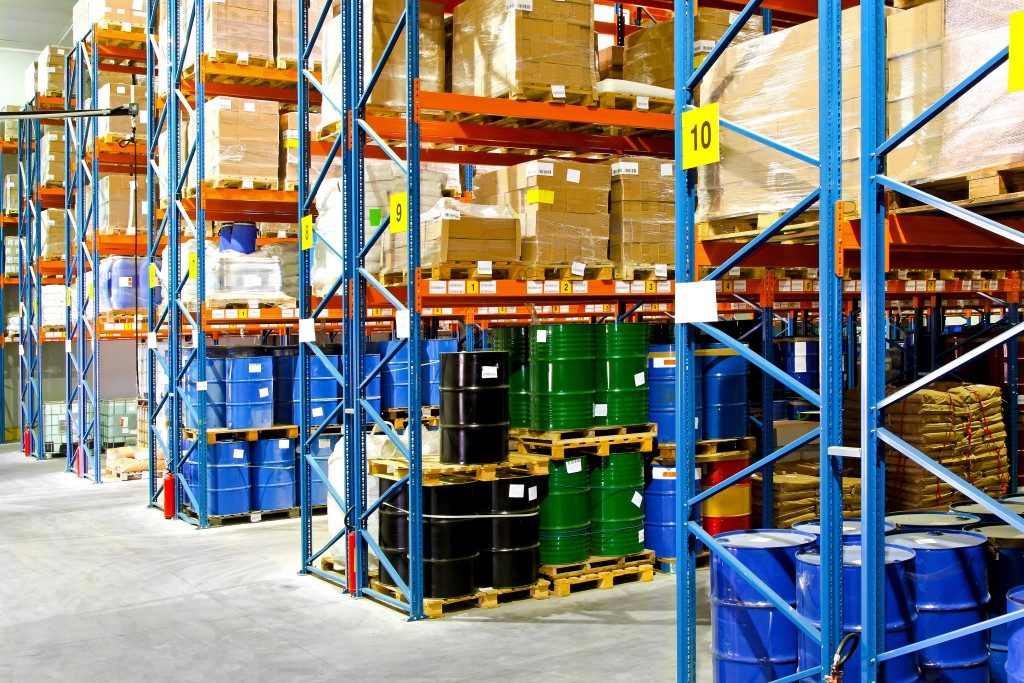Having a warehouse is nowadays a necessity for businesses and companies. They provide space and facilitate efficient inventory control. However, without the right warehouse equipment, you will struggle to move your goods in and out of storage. Working in a warehouse is also very precarious. There are potential hazards and safety pitfalls. Here’s what your warehouse needs for optimal performance and fool-proof safety:
Safety Equipment
Handling warehouse products entails working with heavy machinery, chemicals, and other potentially hazardous things. It’s therefore vital to install relevant safety apparatus when setting up your warehouse. Your warehouse needs safety items, such as:
First Aid Kits
Most workplaces require a first aid kit, and warehouses are no exception. When sourcing for such items, bear in mind the requirements set by the International Safety Equipment Association (ISEA). The necessary first aid items include antiseptic wipes, bandages, gloves, cotton applicators, scissors, tweezers, and burn sprays.
Guard Rails
From forklift movement to elevated storage, there is always the risk of some accident happening in a warehouse. If you want to forestall falls and unwanted forklift intrusion, it’s a good idea to install rails. You should inspect potentially dangerous areas before such installations.
Safety signs
Although signs themselves do not stop calamities, they warn of impending dangers. Make sure that you post appropriate symbols to warehouse places that pose imminent risks.
Storage Equipment
If you plan to maximize your warehouse space, you need the right storage equipment. Not only will moving inventory be easier; your fragile products will be safe, too. An industrial cabinet should help you protect such brittle goods. Other essential equipment that you should purchase includes racks, shelves, bins, and tote boxes.
Lifting Equipment
Stocking goods into and moving products out of your warehouse will require lifting. You will need robust, reliable, and efficient lifting equipment. As opposed to manual operation, your products will be better handled when moved. Depending on the type of products your warehouse processes, you will require equipment such as forklifts, cranes, pallet jacks, service carts, hand trucks, and warehouse castors. When shopping for these warehouse items, always consider the type of your inventory, pallet size, and shelve height.
Conveyors

If you have to move cargo from one part of your storage space to another point, you will need a conveyor. Contrary to manual carrying, a conveyor will significantly save your time and can also transport substantial inventory. Additionally, conveyors improve the safety of your warehouse by decreasing human traffic. Dependent on your warehouse needs, you can shop for specific conveyors including belt conveyors, spiral conveyors, chain conveyors, automotive conveyors, vertical conveyors, and gravity roller conveyors.
Packing Equipment
You will need to pack your inventory to protect them. Packing mainly involves wrapping your products or placing them in specialized containers. It offers immense advantages to your warehouse. Firstly, your goods can be better handled if they are enclosed. Secondly, you can separate products easily and arrange them in the format of your liking. Some packing accessories that your warehouse needs include packing tables, industrial scales, and stretch wrap machines.
The given equipment is vital to any warehouse. However, for the efficient performance of your depot, you need to shop only for quality equipment.

